Real Estate Glossary
Closing costs? Contingencies? CMA's?
What in the world do all of those things mean? We're breaking down common-use terms here in the real estate world that will help ease hesitant home buyers' or sellers' worries, or will just be a fun bit of info for anyone curious about our industry.
Appraisal: After you go under contract on a home, the bank funding your loan will require an appraisal to be performed on the property being purchased. This is so that the bank can be sure they are lending the correct amount of money. The appraiser examining the home will take into account the condition of the property itself, as well as the sale price of comparable homes in the area.
Buyer's Agent: In a transaction, this is the agent representing the buyer throughout the process. They help negotiate terms on the buyer's behalf with the agent on the other side of the transaction representing the seller, also known as the listing agent.
Closing: Your closing refers to the meeting where the sale of the property is finalized. Closing is where buyers and sellers sign the final documents and the buyer provides funds for the down payment and closing costs. Closing typically takes place at the offices of a title company.
Closing Costs: With your closing, you'll be responsible (both as the buyer and the seller) for certain closing costs to include attorney fees, title fees, loan processing costs, etc. Closing costs can typically be calculated as 2-5% of the purchase price.
Comparative Market Analysis (CMA): When determining the sales price of a home as the seller or determining how much to offer on a home as the buyer, your agent will put together a Comparative Market Analysis (CMA) which pulls together sales data from comparable homes in the area to come up with an accurate value for the home you are buying or selling.
Contingencies: Contingencies in real estate refer to any conditions that must be met in order for the home purchase to be finalized. These contingencies could include the sale of another property, financing approval, or that the appraisal must be equal to or greater than the sales price.
Earnest Money: Earnest money is the money given to the seller at the time the offer is made as a sign of the buyer's good faith in following through to purchase the home. The amount is negotiable in the contract, but is typically somewhere around 1% of the sales price.
Home Warranty: A home warranty is a contract covering repairs and replacements on systems and appliances in your home, usually for a one-year period. Buyers can negotiate in their offers for sellers to pay money towards their home warranty for the first year of home-ownership.
Inspection: After a buyer makes an offer and the offer is accepted, a home inspection will be performed on the subject property. Home inspections typically cost a few hundred dollars depending on the size of the home. During the inspection, the inspector will check all areas of the home including plumbing, the foundation, the roof, appliances, etc. to make sure they are all in working order. In the final inspection report, the inspector will make note of any observations regarding areas that were not working or performing as they should. These issues can factor into repair negotiations between the buyer and seller, or even into negotiations on the final sales price.
Listing Agent: This is the agent who represents the seller in the home-buying process. They help negotiate terms on the seller's behalf with the agent on the other side of the transaction representing the buyer, also known as the buyer's agent.
Mortgage Broker: There are several individuals or companies who are responsible for taking care of all aspects of a deal between a borrower and a lender. They will typically pre-approve buyers, originate the loan, and eventually place or sell the loan with a funding source like a bank. Mortgage brokers typically have several products they can offer borrowers based on their income, credit score, liquid assets, etc.
Multiple Listing Service (MLS): The Multiple Listing Service is a service that compiles available properties for sale by member brokers. This information can be shared by brokers with prospective buyers so that they can see the inventory of available homes on the market.
Option Fee: Money paid by a buyer to a seller for the option to terminate a real estate contract within a certain number of days after executing the contract. This allows the buyer time to have necessary inspections performed on the property they intend to buy. Option fees are typically significantly smaller than earnest money - around a couple hundred dollars.
Pre-approval Letter: Before buying a home, a buyer can work with a mortgage lender to get pre-approved for a loan and the lender will provide a written pre-approval letter. Based on general information on their income, credit score, etc. the letter will provide an estimate on how much the bank will lend.
Private Mortgage Insurance (PMI): Private Mortgage Insurance (PMI) is an insurance premium that a buyer is required to pay the lender in order to protect the lender from default on a mortgage. PMI typically ends once the buyer builds 20% equity in the home.
Title Insurance: Title insurance will be included as part of the closings costs and covers research into public records to ensure that the title on a property is free and clear. It insures against financial loss from defects in title. Buyers will typically need two policies: an owner's policy and a lender's policy.
Have more Questions?
Send us an email or give us a call and we'd be happy to answer them for you!




.jpg?w=128&h=128)